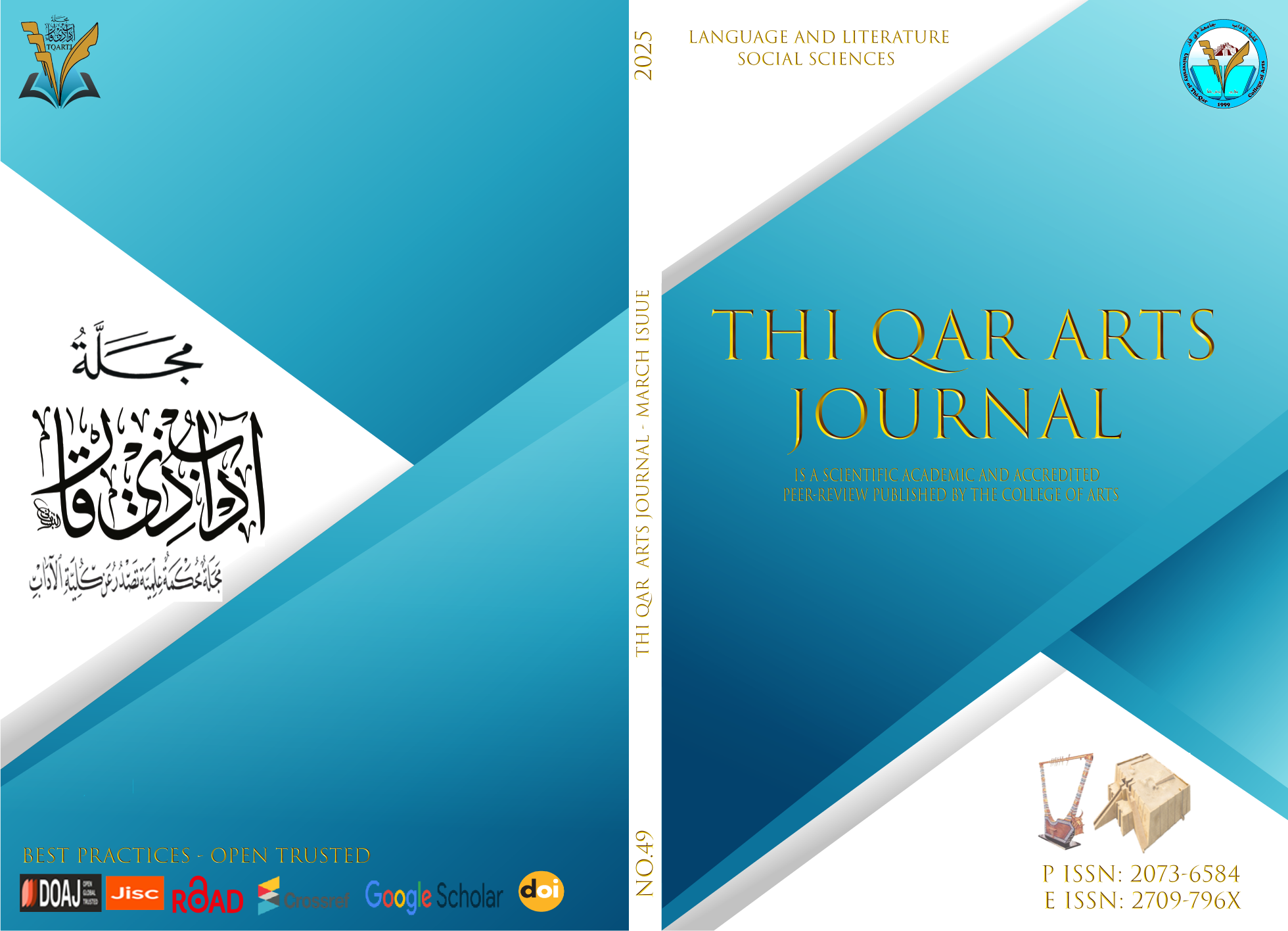The Impossible in the Nominal Sentence According to the Exegetes
DOI:
https://doi.org/10.32792/tqartj.v1i49.754Keywords:
المحال، المسرون، الجملة الاسميةAbstract
This research addresses the term "impossible" in language and terminology, considering it one of the two types of speech, as it can be either coherent or impossible. Speech becomes impossible from the perspective of structure due to its violation of Arabic grammar rules or because it is entirely unspeakable, and from the perspective of meaning due to its contradiction with the speaker's intent or the absence of meaning, among other reasons. Structural impossibility does not exclude the impossibility of meaning; the meaning may become impossible due to structural impossibility, and the meaning may be impossible while the structure remains coherent. This research specifically focuses on the nominal sentence as a linguistic structure that achieves its purpose through the pillars of the subject and predicate. It is impossible for the subject to come without a predicate, for different raisers to converge on the predicate, or for the openings of the surahs (disjointed letters) to be parsed as subject and their predicate as what follows them. The field of research was the books of exegesis to present what the exegetes considered impossible because it falls outside the systems of Arabic grammar, relying on the rules set by grammarians for linguistic structure. They detailed the discussion to reject what the apparent structure of the Quranic text might suggest as impossible or what they mentioned as multiple parsing aspects, considering one of them impossible because it does not align with the intended meaning. The exegete seeks the meaning among the parsing aspects and multiple estimations. Exegetes may convey what Arabic scholars consider impossible in a verse, supporting or refuting this impossibility. It is rare for an exegete to leave the issue of impossibility conveyed by a grammarian without comment, as most exegetes have extensive knowledge of the language, and some are known more for their linguistic expertise than their exegetical work. The researcher balanced the opinions of the exegetes, favoring some over others for their alignment with what grammarians established and their conformity to the most acceptable meaning in the Quranic text. The research concluded with results that included the most important findings of the researcher.
Downloads
References
كتب التفسير، وكتب النحو
Published
License
Copyright (c) 2025 حسين نعيم حريجة مختاض التميمي, أ.د. رياض عبود إهوين

This work is licensed under a Creative Commons Attribution 4.0 International License.
The journal applies the license of CC BY (a Creative Commons Attribution International license). This license allows authors to keep ownership of the copyright of their papers. But this license permits any user to download, print out, extract, reuse, archive, and distribute the article, so long as appropriate credit is given to the authors and the source of the work. The license ensures that the article will be available as widely as possible and that the article can be included in any scientific archive.



















